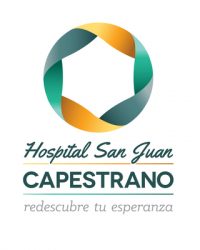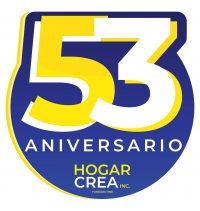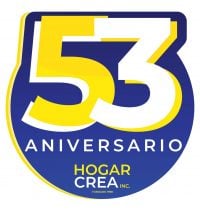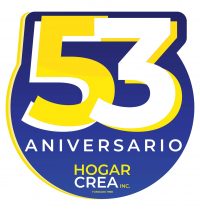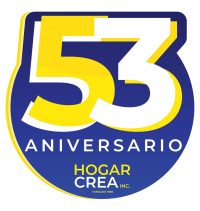San Juan Capestrano Hospital - San Juan
Drug Rehab Center in San Juan, Puerto Rico
San Juan Capestrano Hospital in Puerto Rico specializes in addiction and substance abuse treatment, offering comprehensive services such as inpatient and outpatient treatment, detoxification programs, counseling, and relapse prevention, including holistic treatment options like art, music, and yoga therapy.
About This Puerto Rico Facility
San Juan Capestrano Hospital - San Juan is an Addiction Treatment Facility located in San Juan, Puerto Rico. With accreditation from the Joint Commission on Accreditation of Healthcare Organizations (JCAHO), this facility is dedicated to providing high-quality care for individuals struggling with addiction. With a total capacity of 172 beds, San Juan Capestrano Hospital - San Juan offers comprehensive treatment programs for various types of addiction, including alcoholism, opioid addiction, drug addiction, and dual diagnosis. They provide a range of services tailored to meet the needs of individuals seeking treatment, including detoxification, inpatient and outpatient levels of care, drug rehabilitation, and aftercare support. The facility also accepts private health insurance, allowing individuals to access the care they need.
San Juan Capestrano Hospital - San Juan is committed to addressing addiction and substance abuse through a variety of services. Their detoxification program aims to help individuals safely and comfortably navigate the withdrawal process under medical supervision. For those requiring intensive treatment, they provide inpatient care, offering a structured and supportive environment for individuals to focus on their recovery. Outpatient programs offer flexibility for those who may not require 24-hour support but still need regular therapy and counseling sessions. San Juan Capestrano Hospital - San Juan recognizes the importance of aftercare support and provides services to help individuals transition back into their daily lives while maintaining sobriety. With their comprehensive range of treatment options, this facility is dedicated to helping individuals overcome addiction and regain control of their lives.
Genders
Ages
Modality
Additional
Accreditations

JCAHO
Conditions and Issues Treated
Opioid addiction treatment should be done in a medically supervised drug rehab. Opioid addiction treatment will include detoxification and drug rehab counseling to help both the user and their loved ones learn how to live a successful sober lifestyle. Methadone, buprenorphine, and naltrexone are three medications that can help treat opioid addiction. Individual drug rehab counseling sessions can be helpful to discuss any questions or concerns with the drug treatment program.
Levels of Care Offered at San Juan Capestrano Hospital - San Juan
This center offers a variety of custom treatment tailored to individual recovery. Currently available are Aftercare Support, Detox, Drug Rehab, Inpatient, Outpatient, with additional therapies available as listed below.
Detoxification is the first step in drug addiction treatment. A controlled environment where symptoms can be managed with medication and close observation is provided by drug detoxification. Detoxification is an essential step in the recovery process, but it is also one of the most dangerous. Due to the potential danger, it’s critical to understand what detoxification is and how to complete it safely.
A detox program helps the person physically withdraw from drugs and helps them track their progress. So, suppose the person isn’t ready for sobriety (or relapses). In that case, the treatment professionals can catch it early and help re-orient them towards recovery.
Inpatient treatment is an option that provides addicts with a supportive environment in which they can stop using. This type of intensive care and supervision is appropriate for those who were unable to quit on their own or need more structure than they could get from outpatient treatment, such as the addict most in need of this level of care.
The goal of inpatient rehab is for the addict to stay focused on sobriety and remain free of mood altering substances. Inpatient treatment programs usually offer the following: detox, therapy groups, one-on-one counseling, medication management and aftercare planning.
Individuals struggling with drug addictions can get help from several treatment options, including inpatient and outpatient programs. Outpatient drug treatment programs can also provide patients with different levels of care, usually depending on the patient’s degree of addiction.
At an outpatient program in San Juan, a patient will attend a recovery program during the day and return home in the evening. Suppose a patient is struggling with drug addiction. In that case, an outpatient program can serve as an effective transition point during the recovery process.
Aftercare is a part of drug rehabilitation. It is also known as “post-treatment support.” Aftercare programs are available for addicts after they complete drug rehab. It is often the final step in the recovery process. The goal of aftercare is to ensure that addicts maintain their achievements in rehab and do not relapse. Professionals generally provide aftercare (including addiction therapists, physicians, social workers, psychologists) and involve individual and group therapy sessions.
Therapies & Programs
Individual therapy is a critical component of addiction recovery. It allows the patients to go deep into their core issues and discover how to handle those problems better. Therapy can be conducted in individual sessions as well as group settings. In individual therapy for addiction, the patient meets with their therapist one-on-one to focus on the underlying issues. This allows patients to open up and discuss personal topics they may not feel comfortable discussing in a group setting. This type of therapy can help develop solutions specific to each patient, which helps speed up the recovery process.
Family therapy is a crucial part of drug treatment and getting sober. It is one of the most effective ways to help addicts stay on the path to long-term sobriety. When a drug addict decides that they want to try and get sober, it takes the support of every person they love to succeed. It can be incredibly difficult for loved ones to watch an addict go through the pain and suffering of withdrawal, but by being there with them and supporting them, they can help to make sure that the addiction never returns.
One of the most important parts of family therapy is the relapse prevention plan. During treatment, therapists and doctors will often sit down with the addict and their family to develop a plan in case the addict ever feels like they want to use again. This plan should involve steps the addict and family can take together to prevent them from relapsing in the future. An addict’s family can play a vital part in helping them to avoid relapse because they can spot the warning signs and help them get back on track before it becomes too much of a problem.
Group therapy helps prevent addicts from feeling isolated or unique in their situation by offering a sense of comfort and fellowship. It also creates a forum for addicts to build their support systems and learn from each other. The group therapy sessions at San Juan Capestrano Hospital - San Juan occur in a group setting rather than one-on-one to create a safer, controlled environment where addicts feel comfortable.
Trauma therapy helps people dealing with addiction by allowing them to confront the traumas of their past and move past them. It is important to note that trauma therapy should not be confused with PTSD (post-traumatic stress disorder) Rather, it is used to treat the effects of trauma, which are often at the root of addiction.
Dialectical Behavior Therapy was developed in the 1980s to treat chronically suicidal individuals. It is a cognitive-behavioral therapy that combines strategies derived from Zen Buddhism, such as mindfulness training. DBT has been adapted for use with other types of psychiatric problems, including substance abuse and personality disorders. DBT aims to help patients change their thinking and behavior, instead of relying on medication.
Cognitive Behavioral Therapy (CBT) is a common therapeutic approach to help drug addicts. It teaches addicts new ways of thinking and behaving so that they can avoid relapse. There are several forms of CBT used in drug rehabilitation centers.
Cognitive Restructuring helps addicts identify faulty, negative thinking so that they can work together with the therapist to find healthier ways of thinking, resulting in better decision-making.
Cognitive Behavioral Therapy for Addiction uses the principles of CBT to help treat addiction. It focuses on specific aspects of each person’s thinking, feeling, physiology, and behavior. It aims to identify specific problems in these areas and create a personalized treatment strategy.
The best drug treatment centers offer various services to help addicts learn how to live without drugs. Since addiction is a chronic physical and mental illness, addicts need to learn as many life skills as possible to help them stay clean and sober.
Many drug treatment centers like San Juan Capestrano Hospital - San Juan offer life skills activities as part of their addiction recovery programs. Examples include cooking classes, employment training, resume writing seminars, parenting classes, and computer training. When addicts have various life skills to lean on, they’re better equipped to put their addiction behind them for good.
The primary goal of life skills activities at drug treatment centers like San Juan Capestrano Hospital - San Juan is to help addicts recover from addiction and learn how to live a useful, productive life. Life skills activities help addicts find employment, take care of their families, and give back to the community. After learning about these various life skills, addicts are better prepared to return to society and lead happy healthy lives.
Patient Experience
Experiential Therapy at San Juan Capestrano Hospital - San Juan
Experiential Therapy is a new approach to addiction treatment. Addiction-related psychological issues like depression and anxiety are addressed through physical activities.
Experiential Therapy can help those who have struggled with past traumas or life decisions like drug use. It allows people to gain new perspectives on their behavior patterns by recreating experiences in healthy ways rather than continuing old habits that may no longer serve them well.
Payment Options Accepted
For specific insurance or payment methods please contact us.
Is your insurance accepted?
Ask an expert, call (888) 674-0062
Additional Details
Specifics, location, and helpful extra information.
San Juan, Puerto Rico 926 Phone Number(787) 625-2900 Meta DetailsUpdated November 25, 2023
Staff Verified
Patient Reviews
There are no reviews yet. Be the first one to write one.
San Juan, Puerto Rico Addiction Information
In San Juan, Puerto Rico, the drug addiction problem is relatively bad, with an estimated 9.5% of the population reportedly addicted to drugs. Cocaine is the most commonly abused drug in the city, followed by crack cocaine and marijuana. There are many different drug and alcohol treatment centers in San Juan, Puerto Rico. These facilities offer detox and counseling group therapy and outpatient rehabilitation services.
Treatment in Nearby Cities
- Salinas, PR (30.7 mi.)
- Arecibo, PR (46.3 mi.)
- Naranjito, PR (15.7 mi.)
- Guaynabo, PR (6.2 mi.)
- Yabucoa, PR (24.9 mi.)
Centers near San Juan Capestrano Hospital - San Juan
The facility name, logo and brand are the property and registered trademarks of San Juan Capestrano Hospital - San Juan, and are being used for identification and informational purposes only. Use of these names, logos and brands shall not imply endorsement. RehabNow.org is not affiliated with or sponsored by San Juan Capestrano Hospital - San Juan.
